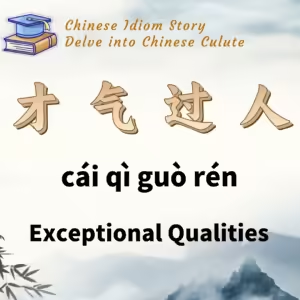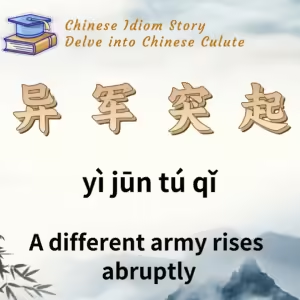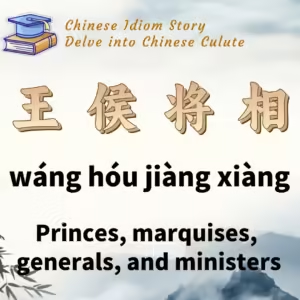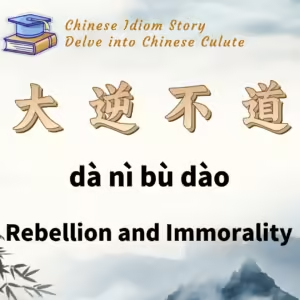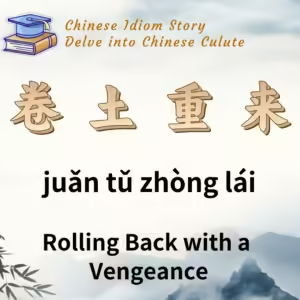
Chinese Idiom: 卷土重来 (Juan Tu Chong Lai)
English Translation: Rolling Back with a Vengeance
pīn yīn: juǎn tǔ zhòng lái
Idiom Meaning: This idiom refers to regrouping and making a strong comeback after experiencing defeat.
Historical Source: Records of the Grand Historian (《史记·项羽本纪》).
Idiom Story:
In July 209 BC, during the Warring States period, Chen Sheng and Wu Guang raised a flag for the peasant uprising against the Qin Dynasty, leading to a response from Xiang Yu and his uncle in the Wu region (present-day Suzhou, Jiangsu). Although they started with only 8,000 men, these soldiers were mostly friends and relatives of the Xiang family, making them brave and skilled fighters. With this foundation, Xiang Yu achieved numerous victories and gradually built a powerful army, becoming a key force in the effort to overthrow the Qin dynasty.
However, during the Chu-Han Contention, Xiang Yu’s fortunes turned. He faced defeat at Gaixia (near present-day Lingbi, Anhui), where he was surrounded by the Han army. In a desperate attempt to escape, he fled south to the banks of the Wu River, accompanied by only twenty-eight loyal followers, with thousands of Han soldiers hot on their trail.
At that moment, the local ferry master approached Xiang Yu and offered his boat, suggesting that he could escape to Jiangdong, which, while not large, still had vast lands and a substantial population where Xiang Yu could establish himself as king. The ferry master urged him to cross the river and rebuild his power before the Han army caught up.
Xiang Yu, however, laughed bitterly at the suggestion. He replied, “Heaven has doomed me, Xiang Yu. Why should I cross the river? Remember how I once led the 8,000 sons of Jiangdong to fight against Qin, and now I return alone? The people of Jiangdong would pity me and still call me king, but how could I face them? Even if they do not speak, how could I not feel ashamed?”
To express his gratitude, Xiang Yu gave the ferry master his prized horse, the renowned black steed, which he had ridden in countless battles. The horse, however, resisted boarding the boat, turning back to look at Xiang Yu. Tears fell from Xiang Yu’s eyes as he gestured for the ferry master to set off.
At that moment, the Han army was closing in. With a fierce roar, Xiang Yu charged into the enemy ranks, bravely killing a Han general and slaying hundreds of soldiers, but ultimately he was gravely wounded and chose to take his own life rather than be captured.
Later, during the Tang Dynasty, the poet Du Mu visited the site of Xiang Yu’s demise. Reflecting on Xiang Yu’s gallant achievements and tragic end, he composed a poem at the Wu River Pavilion. The poem conveys the essence of the idiom:
Victory and defeat are common occurrences in warfare; a true man must endure shame and humiliation. The sons of Jiangdong are talented and numerous; it remains uncertain if they could rise again.
This poem captures the sentiment that, despite the unpredictability of war, true heroes can endure temporary setbacks and rise again. Thus, the phrase “卷土重来” emerged, symbolizing resilience and the potential for resurgence after failure.



